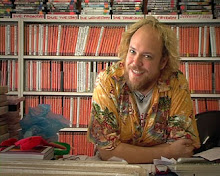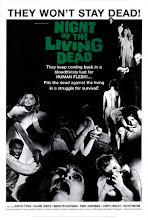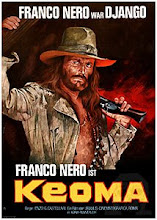 Duel Of The Iron Fist
Duel Of The Iron Fist aka Da Jue Dou, The Duel, Revenge Of The Dragons
Director Chang Cheh Writer Kang Chien Chiu
Cast Ti Lung (Jen Chieh), David Chiang (Ti Wang), Chuen Yuan (Kang), Wang Ping (Butterfly)
 Welcome tonight to Schlock Treatment’s special “Shaw Brothers meet Whore Brothers” kung fu double. The Whore Brothers bit will be more apparent during our second film, but first to Duel Of The Iron Fist, from the insanely prolific Hong Kong studios of the Shaw Brothers, who did everything from musicals to comedies to horror films, but are renowned for pioneering the kung fu film, or as we like to call it the “chop-sockey flick”.
Welcome tonight to Schlock Treatment’s special “Shaw Brothers meet Whore Brothers” kung fu double. The Whore Brothers bit will be more apparent during our second film, but first to Duel Of The Iron Fist, from the insanely prolific Hong Kong studios of the Shaw Brothers, who did everything from musicals to comedies to horror films, but are renowned for pioneering the kung fu film, or as we like to call it the “chop-sockey flick”.
 We have a philosophy at both Schlock Treatment and Trash Video - you can probably find the next Picasso on the walls of an asylum. Meaning there’s great art even in what most people consider “trash”. Genre or pulp cinema can actually be considered great cinema, such as the spaghetti westerns of Sergio Leone, the samurai sword operas of Akira Kurosawa, and their Hong Kong equivalent, the man who defined the style and substance of the Shaw Brothers’ ballets of blood, Chang Cheh.
We have a philosophy at both Schlock Treatment and Trash Video - you can probably find the next Picasso on the walls of an asylum. Meaning there’s great art even in what most people consider “trash”. Genre or pulp cinema can actually be considered great cinema, such as the spaghetti westerns of Sergio Leone, the samurai sword operas of Akira Kurosawa, and their Hong Kong equivalent, the man who defined the style and substance of the Shaw Brothers’ ballets of blood, Chang Cheh.
 The Duel, as it is sometimes called, was made in 1971, around the time Bruce Lee was making his first film for Shaw’s main rival studio Golden Harvest. It wasn’t until Bruce Lee’s death and the release of his final film, Enter The Dragon in 1973, that the kung fu craze exploded all over the world. So Duel Of The Iron Fist is an early classic, picked up by exploitation masters American International Pictures and dubbed into English by a crew that can only be described as Australians pretending to be
The Duel, as it is sometimes called, was made in 1971, around the time Bruce Lee was making his first film for Shaw’s main rival studio Golden Harvest. It wasn’t until Bruce Lee’s death and the release of his final film, Enter The Dragon in 1973, that the kung fu craze exploded all over the world. So Duel Of The Iron Fist is an early classic, picked up by exploitation masters American International Pictures and dubbed into English by a crew that can only be described as Australians pretending to be
Set in 1920s Hong Kong, Duel Of The Iron Fist opens with our flawed anti-hero Jen Chieh (played by one of Chang Cheh’s favourite leading men Ti Lung) watching his gangster father assassinated by rival triads. Jen takes the fall and lays low for a while; when he returns he finds his family has been taken over by their accountant, and as for his true love Butterfly - and let’s face it, nothing says “I love you” more than getting a butterfly tattoo to remind you of your sweetheart - his girl has been forced into prostitution. This forces him into an uneasy alliance with The Rover, played by David Chiang (another Chang Cheh regular), a mysterious assassin dressed in black who smokes cigarettes constantly, and who just happens to be the man who killed Jen’s father.
 This alliance naturally erupts into the expected savagery. And what savagery - knife fights (hence the titular “Iron Fist”), gun battles, torture by blowtorch, and the ever-present slap-slap-slap. If this tale of loyalty and betrayal among Chinese criminals seems familiar to fans of John Woo, it’s no coincidence - the future director of The Killer and Hardboiled was actually a production assistant on Duel..., which naturally led him to cast Ti Lung in his classic breakthrough film A Better Tomorrow in 1986.
This alliance naturally erupts into the expected savagery. And what savagery - knife fights (hence the titular “Iron Fist”), gun battles, torture by blowtorch, and the ever-present slap-slap-slap. If this tale of loyalty and betrayal among Chinese criminals seems familiar to fans of John Woo, it’s no coincidence - the future director of The Killer and Hardboiled was actually a production assistant on Duel..., which naturally led him to cast Ti Lung in his classic breakthrough film A Better Tomorrow in 1986.
Director/Writer Godfrey Ho Producer Joseph Lai
Cast Richard Harrison (Gordon Anderson), David Bowles (Bruce), “Jackie Chan”, Phillip Ko
Welcome back to tonight’s second kung film, and what can be considered one of the great film crimes of the Twentieth Century and award winner for the shoddiest kung fu film of all time, Ninja The Protector.
 It stars Richard Harrison, an American muscleman who went to
It stars Richard Harrison, an American muscleman who went to
Harrison meanwhile continued to work in spy movies, mafia actioners, and as the B-film died off in Europe, he went wherever the work would take him, and in 1975 he was in

 As if the affair couldn’t get any sleazier: the Filmark/IFD operations were based in a rathole in
As if the affair couldn’t get any sleazier: the Filmark/IFD operations were based in a rathole in
Deliberate insurance job or accidental towering inferno? We’ll never know for sure. All that remains is a catalogue of titles remembered by bad movie fans as the most wretched kung fu movies of all time. Bad dubbing, bad acting, bad camerawork, and I feel so sleazy for even programming this, but what the hell, this one is for all you bad kung fu fans out there - the 1986 Ninja The Protector.






















































































No comments:
Post a Comment